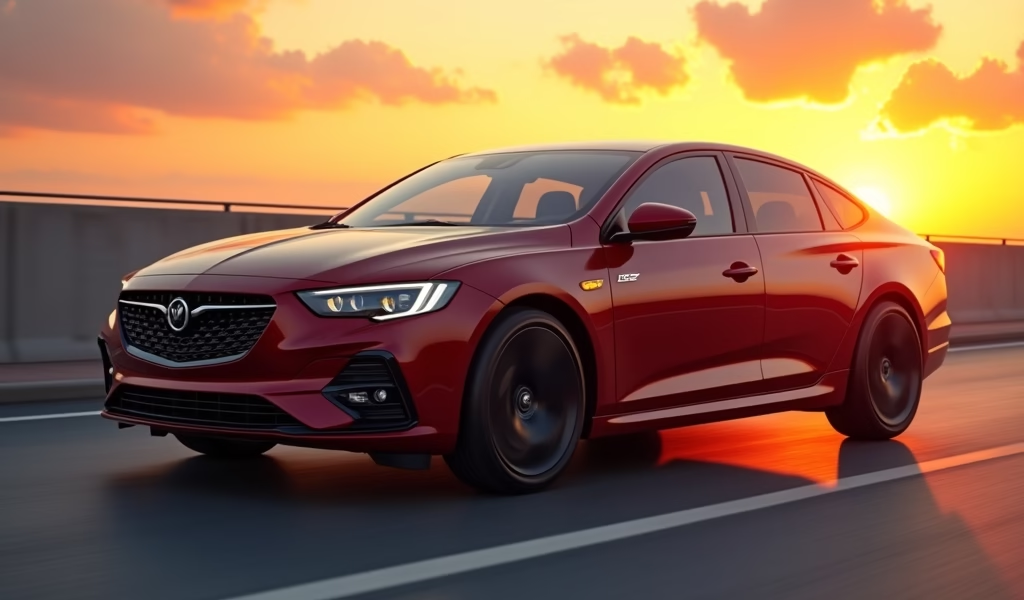Overview
This article provides seven practical tips for securing legitimate zero-down car deals, emphasizing the importance of excellent credit, strategic timing, understanding total ownership costs, and reading the fine print carefully before signing. While 0-down offers can be beneficial with proper preparation, shoppers should recognize these arrangements simply shift payment timing rather than eliminate costs, and should thoroughly research dealerships, consider certified pre-owned vehicles, and negotiate beyond just the down payment terms.
Table of Contents
- Understanding 0 Down Car Deals
- The Reality Behind Zero Down Offers
- Proven Tip #1: Maintain a Stellar Credit Score
- Proven Tip #2: Research Dealerships with Legitimate Offers
- Proven Tip #3: Timing Your Purchase Strategically
- Proven Tip #4: Understand the Total Cost of Ownership
- Proven Tip #5: Negotiate Beyond the Down Payment
- Proven Tip #6: Consider Certified Pre-Owned Vehicles
- Proven Tip #7: Read the Fine Print Carefully
- Conclusion
- Frequently Asked Questions
Understanding 0 Down Car Deals
The allure of 0 down car deals dances in the dreams of many car shoppers. These tempting offers promise the keys to a new vehicle without the burden of an initial payment. But beneath the shiny surface of these deals lurks a landscape that requires careful navigation. As a mechanic with over 20 years of turning wrenches and advising customers, I’ve seen countless folks drive off in zero-down vehicles only to sputter back with financial regrets.
Zero down deals aren’t mythical creatures, but they’re certainly selective about who they befriend. These arrangements typically require pristine credit scores and sometimes carry hidden costs that can ambush your budget down the road. Understanding what truly makes a 0 down car deal work for you—not against you—is crucial before signing anything.
The concept seems straightforward: drive away today, pay nothing upfront. Yet these deals often involve 0 interest car deals or special financing terms that might compensate for that initial generosity. Think of it like a mechanical system—what seems like a simple adjustment in one area often requires recalibration elsewhere.
The Reality Behind Zero Down Offers
Let’s pop the hood on these deals and examine what’s really powering them. Dealerships don’t offer 0 down options out of generosity—they’re businesses looking to move inventory and maximize profits. The absence of a down payment often means higher monthly payments or extended loan terms that can leave you “underwater” on your loan (owing more than the car is worth) for longer.
These offers frequently appear during seasonal promotions or end-of-year clearances when dealers are desperate to clear last year’s models. Sometimes, the zero-down component is merely the flashy chrome that catches your eye, while the real mechanics of the deal hide in the fine print. Many shoppers fixate on the down payment without considering the total cost over the life of the loan.
According to data from the Consumer Financial Protection Bureau, longer-term auto loans with little or no money down have become increasingly common, but they generally cost consumers more in the long run. Think of it as choosing between an oil change now or an engine rebuild later—sometimes paying upfront saves significant money down the road.

Proven Tip #1: Maintain a Stellar Credit Score
Your credit score is the master key that unlocks the most favorable 0 down car deals. Much like a well-maintained engine runs smoother and more efficiently, a polished credit profile opens doors to better financing terms. Lenders view your score as a reflection of your financial reliability—the higher it gleams, the lower their perceived risk.
To buff your credit to a high shine before car shopping, consider these practical steps:
- Pay down existing debt, particularly credit card balances
- Make all payments on time—even a single late payment can leave a scratch on your score
- Avoid applying for new credit in the months before car shopping
- Review your credit reports for errors that might be dragging down your score
- Keep old accounts open to maintain a longer credit history
A credit score above 700 typically positions you well for zero-down opportunities, while scores exceeding 750 can put you in the driver’s seat for the most attractive financing terms. Remember, credit scores don’t improve overnight—like restoring a classic car, building excellent credit requires patience and consistent attention to detail.
Even with stellar credit, read the terms carefully. Some 0 APR car deals might seem attractive but could exclude the zero-down option. When combined properly, however, good credit can help you secure both favorable interest rates and minimal upfront costs.
Proven Tip #2: Research Dealerships with Legitimate Offers
Not all dealerships are created equal when it comes to 0 down offers. Some showrooms shine with legitimate opportunities, while others camouflage bait-and-switch tactics behind flashy advertisements. Dealerships whisper promises through their marketing, but you need to listen carefully to distinguish genuine value from empty echoes.
Start by researching manufacturer-sponsored promotions rather than dealer-specific advertisements. Manufacturers like Toyota, Honda, and Ford periodically offer true zero-down financing on select models, particularly during seasonal sales events or when introducing new models. These corporate-backed programs typically come with more transparent terms than individual dealership promotions.
Check dealer reviews specifically mentioning financing experiences. Previous customers often share candid feedback about whether the promised deal materialized as advertised or transformed into something less favorable at signing. The dealership’s reputation for honoring advertised terms serves as your first diagnostic test of their trustworthiness.
Consider working with dealerships that prominently display their financing terms online. Transparency before you visit often indicates transparency throughout the process. Be particularly wary of small dealerships advertising zero down with “no credit check” or “guaranteed approval”—these red flags often signal predatory lending practices that compensate for the missing down payment with exorbitant interest rates.
Proven Tip #3: Timing Your Purchase Strategically
Timing isn’t just crucial for perfect ignition—it’s essential for capturing the best 0 down car deals. The automotive retail calendar has distinct seasons when dealerships become particularly motivated to move inventory, creating a perfect environment for favorable financing terms.
End-of-month opportunities arise when dealerships race to meet sales quotas. Sales managers feel mounting pressure as the month winds down, often authorizing more generous terms to close deals and hit targets. This monthly cycle creates a predictable window when your negotiating leverage increases, particularly on the last weekend of each month.
The calendar year’s end presents even greater potential. December—especially the week between Christmas and New Year’s—often witnesses the convergence of multiple motivating factors: yearly quotas, the need to clear outgoing model-year inventory, and manufacturer incentives. This perfect storm creates ideal conditions for securing 0 down arrangements with favorable terms.
Model changeover periods offer another strategic timing opportunity. When new models arrive, dealerships anxiously seek to move the previous year’s inventory, which suddenly appears less desirable despite often being nearly identical to the incoming versions. This transition typically occurs in late summer through fall, depending on the manufacturer.
Holiday weekends throughout the year—particularly Memorial Day, Labor Day, and Black Friday—feature heavily advertised sales events where 0 percent financing for 72 months cars and similar promotions become more readily available. These promotional periods often combine manufacturer incentives with dealership motivation, creating a buyer-friendly climate.

Proven Tip #4: Understand the Total Cost of Ownership
Looking beyond the enticing 0 down banner requires the same thoroughness as inspecting beyond a car’s gleaming paint job. The true cost of vehicle ownership extends far beyond monthly payments, and understanding these expenses prevents budget-draining surprises down the road.
Insurance premiums often rise significantly with zero-down purchases. Since you’ve invested less equity upfront, lenders typically require more comprehensive coverage to protect their larger stake in the vehicle. Before committing to any deal, obtain insurance quotes to incorporate this expense into your ownership calculation.
Consider depreciation’s impact, particularly with new vehicles. Cars typically lose 20-30% of their value in the first year, according to research from Edmunds. Without a down payment establishing initial equity, you’ll likely owe more than the car’s worth for a longer period—a precarious position if you need to sell or face an accident where the vehicle is totaled.
Maintenance costs vary dramatically between makes and models. German luxury vehicles might offer tempting zero-down leases but demand premium-priced maintenance. Japanese and Korean brands generally deliver more affordable long-term ownership expenses. Research model-specific maintenance histories and typical repair costs before being swayed by zero-down financing on a maintenance-intensive vehicle.
Fuel efficiency directly impacts your monthly operating expenses. A gas-guzzling SUV obtained with no money down might fit your budget on paper but create a constant drain through fuel costs. Calculate the difference in monthly fuel expenses between efficient and less efficient models you’re considering—over years of ownership, this figure can be substantial.
Proven Tip #5: Negotiate Beyond the Down Payment
When pursuing 0 down car deals, don’t let the absence of a down payment narrow your negotiating focus. The purchase price still deserves your attention—perhaps even more so when you’re financing the entire amount. Every dollar you trim from the vehicle price reduces your principal balance and subsequent interest payments.
Start negotiations based on the dealer’s invoice price rather than MSRP. This information is readily available through resources like Kelley Blue Book or Edmunds and provides a realistic baseline for discussions. Remember that dealers still profit at invoice through manufacturer incentives and bonuses, so don’t hesitate to start below this figure, especially on popular models.
Consider these additional negotiation targets beyond the down payment:
- Extended warranty prices (these are almost always marked up significantly)
- Documentation and preparation fees (often padded with profit margin)
- Trade-in values (these can sometimes offset the need for a down payment)
- Interest rates (even with zero down, rates remain negotiable with good credit)
- Add-on products like paint protection, fabric guard, or security systems
Approach the negotiation holistically rather than focusing solely on the monthly payment. Dealers often emphasize monthly figures to distract from the overall cost. A payment that seems manageable might mask an inflated purchase price or extended loan term that costs thousands more over time.
Remember that your strongest negotiating position comes from being willing to walk away. Genuine 0 down opportunities exist across multiple dealerships—don’t become emotionally attached to a particular vehicle or deal. Patience and persistence typically yield better terms than rushing to sign.
Proven Tip #6: Consider Certified Pre-Owned Vehicles
Certified Pre-Owned (CPO) programs offer a savvy middle ground for value-conscious shoppers seeking 0 down options. These vehicles deliver significant savings compared to new models while providing manufacturer-backed warranties that mitigate the typical used car concerns. The vehicles’ reduced price points make zero-down financing more accessible and less financially stressful.
CPO programs vary between manufacturers but typically include:
- Comprehensive multi-point inspections (often 100+ points)
- Remaining factory warranty plus additional coverage
- Vehicle history verification
- Roadside assistance benefits
- Special financing rates often comparable to new vehicle offers
The greatest advantage comes from avoiding the steepest depreciation period. Since these vehicles have already experienced their sharpest value decline, you’re less likely to find yourself owing significantly more than the car is worth—a common predicament with zero-down new car purchases.
Manufacturer CPO programs generally offer more robust protection than dealer-specific “certified” programs. Brands like Honda, Toyota, and Lexus are particularly renowned for stringent certification standards and comprehensive coverage. These programs frequently include special financing incentives that make zero-down arrangements more attainable, even for buyers with less-than-perfect credit.
When evaluating CPO options, pay particular attention to the warranty details and remaining coverage. The best programs transfer the balance of the original warranty and add significant additional coverage—sometimes up to 100,000 miles. This protection creates a safety net that makes the absence of a down payment less financially risky.
Proven Tip #7: Read the Fine Print Carefully
The fine print in 0 down car deals often conceals crucial details that can transform an apparently wonderful opportunity into a financial burden. Like examining the undercarriage of a used car before purchase, scrutinizing contract details reveals potential problems before you’re committed. Dealership contracts deliberately use dense language and tiny type to obscure terms that benefit the seller rather than the buyer.
Watch for these common fine print complications:
- Deferred down payments that simply postpone rather than eliminate your upfront cost
- Balloon payments lurking at the end of the loan term
- Prepayment penalties that prevent refinancing if you find better rates
- Mandatory add-on products buried in the payment structure
- Interest rate increases triggered by specific conditions
Pay particular attention to qualification requirements stated in advertisements. Many zero-down promotions apply only to “well-qualified buyers” with specific credit score thresholds. If you fall short of these requirements, the terms offered at signing might differ dramatically from what brought you to the dealership.
Never feel rushed to sign financing documents. Reputable dealers will allow you to take paperwork home for review before committing. If you encounter resistance to this reasonable request, consider it a warning sign about the dealer’s transparency and practices. Having a finance-savvy friend review the terms, or even paying an attorney for an hour of document review, could save thousands over the loan’s life.
Finally, ensure all verbal promises appear in writing. Statements about future services, pricing adjustments, or complementary features hold weight only when documented in the signed agreement. If a salesperson or finance manager makes assurances that significantly impact your decision, insist these points be added to the contract before signing.
Conclusion
Navigating the world of 0 down car deals requires the same careful attention and knowledge as maintaining your vehicle’s critical systems. These arrangements can either provide a smooth path to vehicle ownership or lead to financial breakdowns that leave you stranded. The difference ultimately depends on your preparation, understanding, and discipline throughout the process.
Remember that zero down doesn’t mean zero cost—it simply shifts when and how you pay. By maintaining excellent credit, researching legitimate offers, timing your purchase strategically, understanding total ownership costs, negotiating comprehensively, considering CPO options, and scrutinizing the fine print, you position yourself to benefit from these deals rather than being exploited by them.
Like a well-maintained engine, a carefully structured car deal can provide years of reliable service to your financial life. The initial effort of thorough research and negotiation pays dividends throughout your ownership experience. With these seven proven tips in your toolbox, you’re equipped to secure a zero-down arrangement that truly serves your transportation needs without compromising your financial future.
Approach your car purchase with the same care and attention you’d give to maintaining your vehicle. A thoughtful acquisition process leads to a more satisfying ownership experience—one where both your car and your finances run smoothly for years to come.
Frequently Asked Questions
What credit score do I need for a 0 down car deal?
Most legitimate 0 down car deals require a credit score of 700 or higher. Scores above 750 will qualify you for the best terms and lowest interest rates.
Are 0 down car deals actually a good idea?
They can be beneficial if you have excellent credit and get favorable interest rates without hidden fees. However, you’ll pay more interest over the loan term and risk being “underwater” on your loan longer.
Do dealerships really offer true 0 down options?
Yes, many dealerships offer genuine 0 down options, especially during promotional periods or end-of-model-year clearances. Manufacturer-sponsored programs typically provide the most transparent and favorable terms.
What’s the difference between 0 down and 0% APR?
A 0 down deal requires no upfront payment but typically includes standard interest rates. 0% APR offers no interest but usually requires a down payment, though some special promotions may offer both benefits to highly-qualified buyers.
Should I put money down even if a 0 down offer is available?
If possible, making even a small down payment is financially beneficial. A down payment reduces your principal balance, lowers monthly payments, and helps you build equity faster, reducing the risk of owing more than the vehicle is worth.


Pingback: Zero Down Car Loans: Top 5 Car Care Tips - knowsyourcar.com